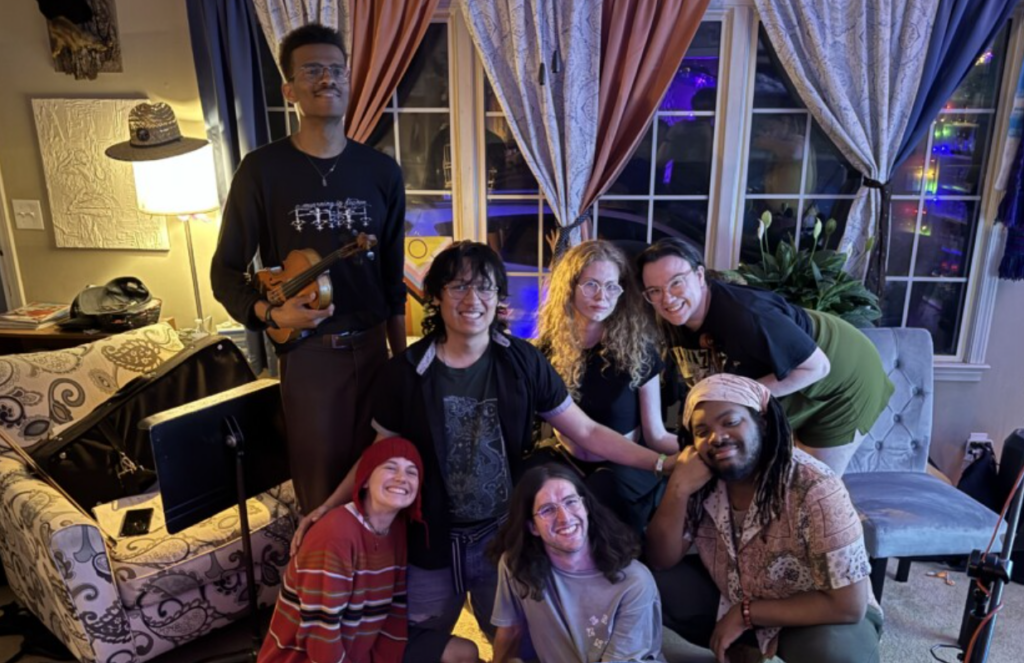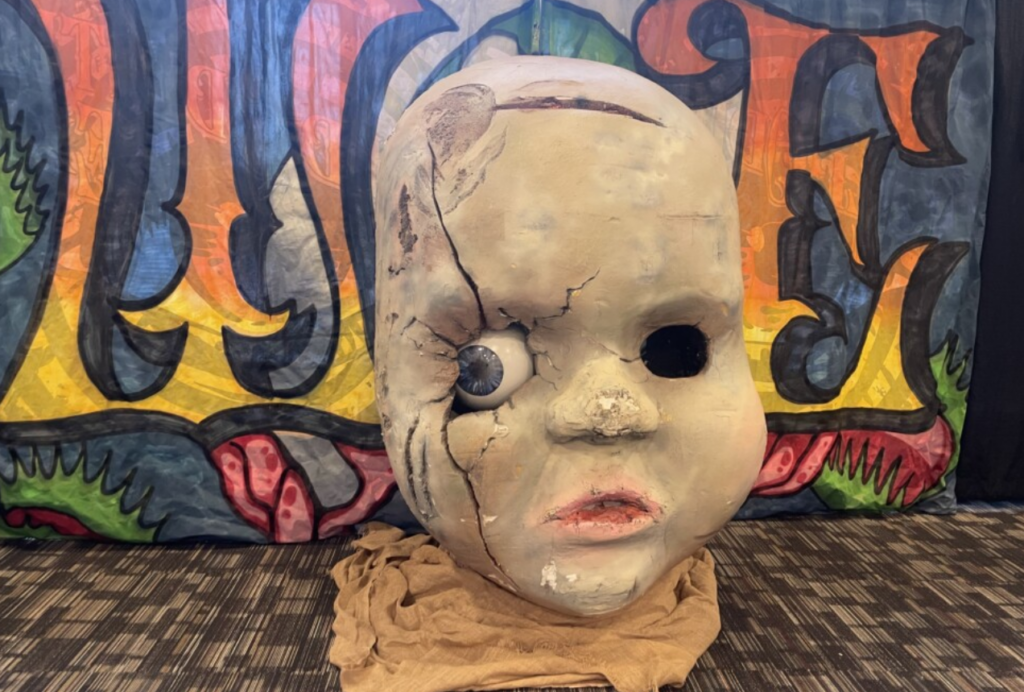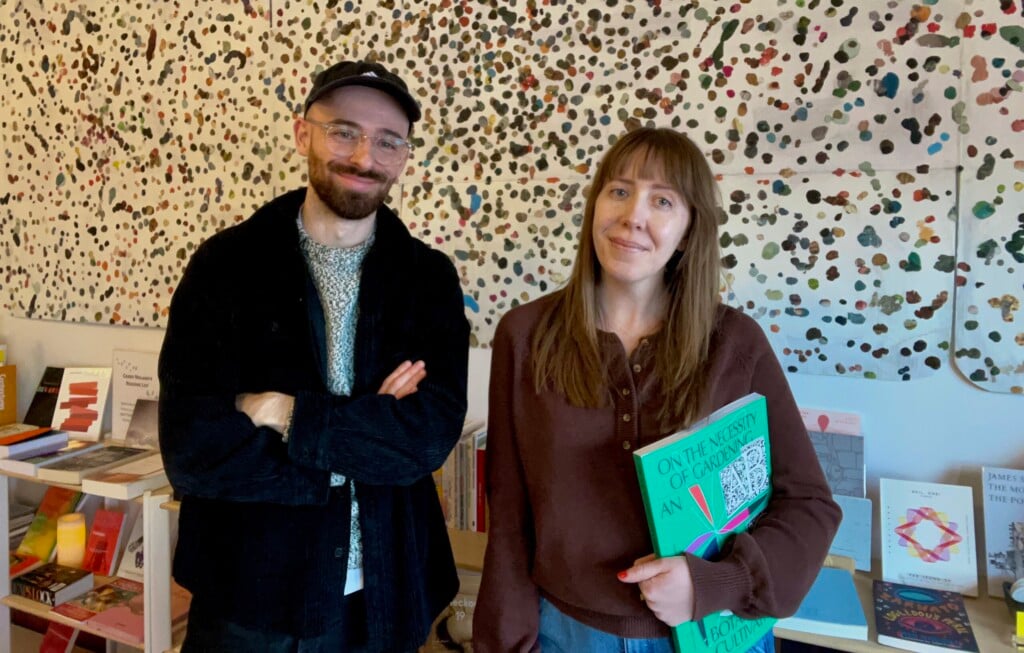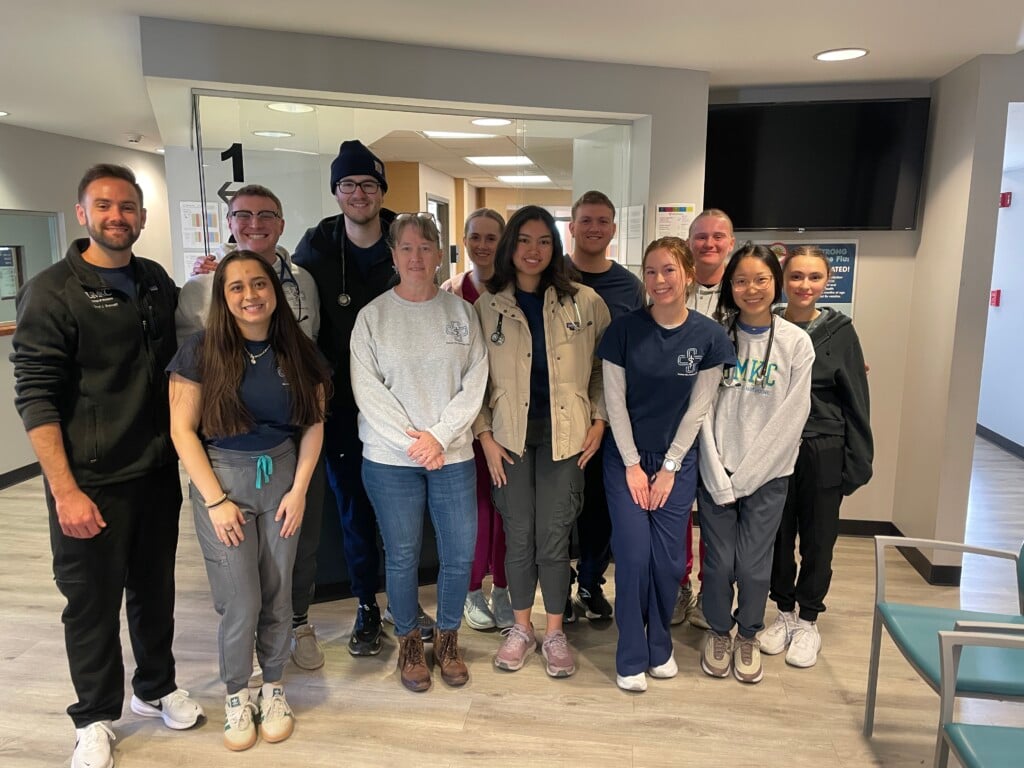KC Cares: Black Archives of Mid-America prevent erasure of the people, events that built the metro

Carmaletta Williams, CEO of the Black Archives of Mid-America, shows some of the objects a cabin believed to have belonged to a former slave named Lucy Willis, who lived in Missouri. // Photo by Beth Lipoff
The Black Archives of Mid-America started as a collection in the trunk of a car. Now, it has its own building with numerous exhibits and files bursting with much more information than can fit on display.
CEO Carmaletta Williams says the archive is an active museum and learning space that encourages schools, families, and community members to come and learn about the stories of Kansas City’s black figures through photos, documents, artifacts, and oral histories.
“The big goal is to make the life and culture of people of African descent real, approachable, and understandable, and to tell the truth about history and educate people on what it is, what it has been, and what it will be,” Williams says.

Many exhibits at the Black Archives of Mid-America highlight positive contributions black people have made to Kansas City. // Photo by Beth Lipoff
A focal exhibit of the collection is a cabin believed to have belonged to a former slave named Lucy Willis, found about 25 miles north of Chillicothe. Another is a mural depicting lynchings, surrounded by the dates of lynchings in Missouri, marked with the names of the victims and, in some cases, a jar of soil from the exact spot in question.
Not every exhibit at the archive is about a chilling moment in history. It also hosts a display about the Women’s Basketball Association as well as many highlighting black individuals who made positive changes and developments for people in Kansas City, such as educator Myrtle Foster Cook and publisher Nelson Crews.
One exhibit space changes each month to keep the collection from becoming static and to give people more reasons to keep coming back. Recently, it hosted a display of black representation through dolls over the years.

Carmaletta Williams, CEO of the Black Archives of Mid-America, points out one of the jars of soil that’s part of the archive’s exhibit on lynchings in Missouri. // Photo by Beth Lipoff
“We make sure people understand that they are historic, they are making history, and they are a part of what makes the identity of black people in this area,” Williams says.
A recording studio in the building allows them to keep collecting oral histories from people as they go forward. Genealogy software available for public use also helps people trace their roots.
Archivist Laura Darnell has files filled with newspaper clippings, photos, and even the personal papers of Alvin Ailey. Among the numerous items in storage are things such as railroad porter’s metal badge. The archive does accept donations of papers and objects, space permitting.
“We try to take in everything that’s related to black history, black culture. The only limit really is size,” Darnell says.
People have asked her about topics ranging from church and neighborhood history to the creation of 71 Highway.

Exhibits at the Black Archives of Mid-America trace black history in the region from the mid-19th century to the present. // Photo by Beth Lipoff
Kansas City native James McGee II, now a senior at Morehouse College, helped found the Black Archives Youth Coalition Network and has assisted the archive in doing a lot of social media and youth outreach.
“Dr. Carma was really big on marketable skills we can have when we leave,” he says.
His experience with the archive has led him to shift his initial goal of going into politics.
“I realized my passion was working in a community. I will hopefully go into corporate social responsibility at one of America’s Fortune 500, where I’ll be doing some of the work like I did at archives with more resources and provide it to more communities,” he says.
Williams has seen lots of people have emotional responses to the archive’s sentimental and moving displays.
“I remember a little white girl and a little black girl with their arms over each other’s shoulders after they went through our exhibit who said, ‘Nobody can tell us we can’t be friends.’ I said, ‘Has somebody been trying?’ They said, ‘Yeah,’ and we talked about that,” Williams says.

Archivist Laura Darnell shows off a railroad porter’s badge, one of the many objects in the archive’s collection. // Photo by Beth Lipoff
Community involvement is important for the archive, too. To that end, it started the Stop the Violence Basketball Tournament in 2023 to encourage people to engage in positive ways.
“They don’t have to accept all this violence. They don’t have to accept the negative images of themselves. They can transcend that in some kind of way, and that’s what we try to do,” Williams says.
Volunteer opportunities are available for teens and adults, ranging from helping sort donated books to giving tours of the archive.
The Black Archives of Mid-America, 1722 E. 17th Terr., is open 9 a.m. to 5 p.m. Monday through Friday and on the weekends by appointment only. Admission is free. For more information on visiting or volunteering at the archive, visit blackarchives.org.




